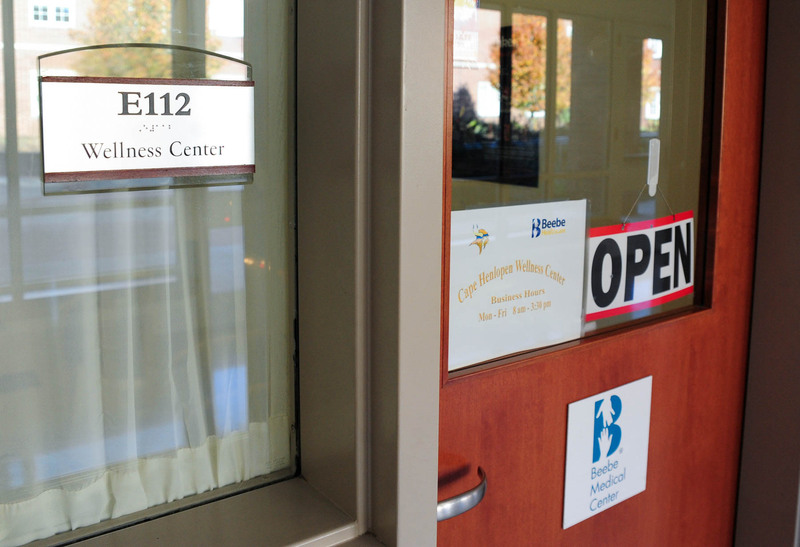Cape Henlopen school board has approved providing reproductive health services to students at Cape High’s Wellness Center beginning in the 2017-18 school year.
At its Dec. 15 regular meeting, the board voted 6-1 to offer contraception, and testing and treatment for sexually transmitted diseases at the wellness center. Before the vote, Cape was one of three Delaware school districts that did not offer reproductive healthcare.
Beebe Healthcare runs the wellness program and will decide what types of contraception will be offered. The selection could include condoms, daily birth control pills, a three-month form of birth control known as the Depo-Provera shot, or an under-the-arm implant that providers say can prevent pregnancy for up to four years.
Testing for HIV and other sexually transmitted diseases will also be available to students, who by state law need no parental consent for reproductive healthcare services.
Board member Janis Hanwell said she supports the addition of reproductive healthcare because of alarming statistics that rank Delaware second in the nation for sexually active teens and third for the number of teens under 14 who are sexually active. A lack of clinics in the beach area is also concerning, she said. “How's a student going to find a ride if they don't want to get a ride from a relative?” she asked, referring to transportation to the closest available clinic in Georgetown.
Board member Ronnie Posner said providing reproductive healthcare service is the responsible thing to do. “We can't think that this is going to go away,” she said. “We can't just turn our backs on this and say it doesn't exist.”
Board member Jason Bradley said he struggled with his vote, but he thought back to when he was young, and recalled it may have been a difficult discussion, even with a supportive family.
“I don't know how comfortable I would've been having this conversation with my mom,” he said.
Board member Jen Burton agreed talking about birth control can be difficult, especially for a teen.
“The majority of girls don't have the ability to talk to a parent,” she said. “Preventing a sexually transmitted disease or pregnancy … it's what's best. It may not be for all, but the majority of the 1,400 kids don't feel comfortable going to a guardian.”
Getting the word out about reproductive services at the high school is important, said board member Jessica Tyndall.
“Either way, the communication piece of this is excellent,” she said. “I really feel like these services are needed.”
Board President Andy Lewis was the sole dissenting vote. He criticized information given at a previous school board meeting that suggested a parental consent form would cover reproductive healthcare services.
“I can't be for this,” he said. “We were told that there is an opportunity to opt out, and now we're told there isn't.”
Jo Ann Economos, nurse practitioner of the Cape High Wellness Center, told board members at a November meeting that an opt-out option could be considered.
“I was wrong, and I apologize for any misunderstanding,” she said.
Milton resident Ave Malhern of Milton said she questions whether a young student can understand the physical risks of using contraception. Condoms also do not prevent sexually transmitted diseases, she said.
“What kind of decision can they make?” she asked.
Lewes resident Robert Fischer said there are adverse effects associated with birth control that a young person may not realize.
“I question whether the child knows the risks,” he said.
Economos said students are counseled about their options – including abstinence – before they receive any form of birth control.
Cape’s decision to add reproductive services is a change from the way the high school’s wellness center previously operated.
Up to now, in order to access the wellness center, Cape High students had to have parental consent for services that included counseling on nutrition, anger management or minor medical treatment.
Board Vice President Alison Myers questioned why the center requires a consent form for minor medical treatment, but not for reproductive healthcare.
“Why does the district need consent for a child to get treatment for strep throat, but not for reproductive health?” she asked.
Bruce Leshine, vice president and general counsel for Beebe Healthcare, said state law passed in 1970 clearly states that reproductive healthcare and treatment is available to a child 12 and older. For all other medical treatment, state law requires parental consent for children younger than 18.
Myers said Cape needs to reevaluate its parental consent for the wellness center now that reproductive healthcare services have been added.
“In the past, we've had this notion of membership to the wellness center,” she said. “This whole notion of membership needs to be looked at … consent should be a consent for medical treatment.”
Leshine suggested providing a consent form for nonreproductive health services while notifying parents that reproductive healthcare services, which require no parental consent, are available to their child.
Myers said the board should also examine whether a consent form for medical services signed by parents only once when their students enroll at Cape High is sufficient. The law is unspecific about whether a one-time consent signed by parents is enough. Myers said the board should look into requiring parental consent forms at the beginning of each school year, or possibly at every visit.
State law governing access to health information is laid out in Title 13, Chapter 7, section 710a.
Melissa Steele is a staff writer covering the state Legislature, government and police. Her newspaper career spans more than 30 years and includes working for the Delaware State News, Burlington County Times, The News Journal, Dover Post and Milford Beacon before coming to the Cape Gazette in 2012. Her work has received numerous awards, most notably a Pulitzer Prize-adjudicated investigative piece, and a runner-up for the MDDC James S. Keat Freedom of Information Award.



















































